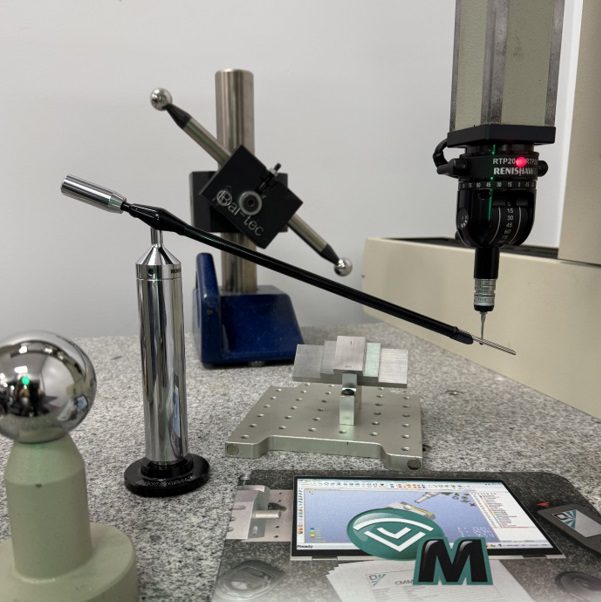
CMM-Manager includes ISO and ASME performance verification routines
🛠️ What This Means:
- ISO (e.g., ISO 10360 series) and ASME (e.g., B89.4.1) are internationally recognized standards for CMM performance testing and verification.
- They define different methods and reporting structures for verifying your CMM’s accuracy, repeatability, and reliability.
Key Reasons It Matters:
1️⃣ Compliance with Customer and Industry Requirements
- Some users (especially automotive and aerospace) require ISO 10360-based calibration certificates.
- Others (particularly in North America) require or accept ASME B89-based verification.
- Having both ensures CMM-Manager can support your quality system and customer audits, regardless of which standard applies.
2️⃣ Traceable, Comparable Performance Verification
- Running verification routines in CMM-Manager enables:
- Internal checks between annual calibrations.
- Verification of performance after moves, collisions, or maintenance.
- Consistency with your external calibration provider’s methods.
- You can compare your software’s verification results with your calibration certificates to detect drift early.
3️⃣ Supports Global Manufacturing Operations
If you supply customers globally or are part of a multinational organization:
- ISO standards are commonly used in Europe and Asia.
- ASME standards are more common in North America.
- Using both enables consistent internal quality verification across all facilities and customers.
4️⃣ Protects Your Measurement Integrity
Regularly running built-in verification routines using these standards ensures:
- Your CMM is performing within tolerance.
- You are proactively identifying issues that could affect product quality.
- Reduces risk of scrap, rework, and customer returns.
What Is the Advantage of CMM-Manager’s Open-Source Error Map?
CMM-Manager’s “open-source error map” means:
- The volumetric error compensation (error map) used to correct geometric inaccuracies on your CMM is fully accessible and transparent.
- It is not locked behind proprietary formats or vendor-only calibration tools.
Can Anyone Calibrate My CMM Using CMM-Manager?
Not “Anyone,” But Any Qualified Provider Can
- Calibration requires specialized equipment (e.g., laser interferometers, step gauges, calibration spheres) and trained personnel.
- CMM-Manager’s open-source error map allows any qualified calibration service provider to generate and load an updated error map onto your system.
- Calibration provided by your CMM OEM manufacturer can be costly, CMM-Manager allows you to choose a local and cost-effective calibration and service provider.
